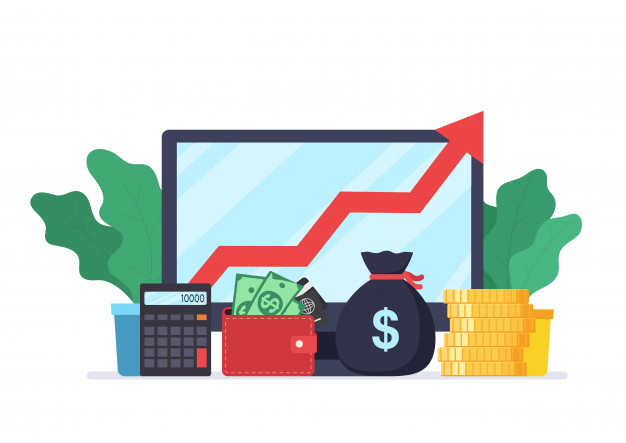Which Best Describes The Difference Between Stocks And Bonds? – Complete Guide On Stocks And Bonds

Are you thinking of making an investment? Are you researching how to allocate your money? Before you start to buy any assets, like bonds and stocks, it is recommended to develop a well-diversified portfolio strategy.
Among the most traded assets, stocks and bonds are popular duos. A variety of brokers and c them on several different platforms.
So, it is really vital to know “Which best describes the difference between stocks and bonds?” and for that, you need to get a thorough knowledge of the stock market and bond market.
Stock trading for beginners is possible if you have the right mindset for investing. You need to choose the best platforms that can help you start in this ecosystem. This can help you with the right kind of education and direction that you are looking for.
The Bond Market
The bond market is the platform where the investors go to trade, like buying and selling debt securities, more specifically bonds. Generally, governments or corporations issue bonds. There are other names for this particular bond market, like the debt market or the credit market. Those securities that are sold on the bond market are nothing but different forms of debt.
The Trading Places
There is no centralized location for trading. So, in the bond market, bonds are mainly sold over the counter (OTC). Typically individual investors do not participate in the bond market. Large institutional investors generally participate in the bond market, such as pension funds foundations, endowments, hedge funds, investment banks, and asset management firms.
Participants Of Bond Market
The bond market includes three main groups they are
- Issuers: Issuers are the entities, which register, develop, and also sell instruments on the very bond market. They can be corporations or different government levels. Here are some examples for you.
Treasury bonds are issued by the United States Treasury. These are long-term securities, which offer bi-annual interest payments only for investors, and after 10 years, they get mature.
- Underwriters: Do you know who evaluates the risks in the whole financial world? They are the underwriters. Here, in the bond market, generally, an underwriter buys securities from the issuer and then sells them to gain profit.
- Participants: these entities of the bond market buy and sell bonds along with other related securities. After buying bonds, these participants issue a loan for the particular length of the security. An in return receives interest. Once the bond matures, the participants are paid back the face value of a particular bond.
The Stock Market
Now, for the answer to the question “Which best describes the difference between stocks and bonds?” it is important to understand what the stock market is. The place where the investors generally go for trading equity securities, for example, common stocks and derivatives along with options and futures. Stock exchanges are for trading stocks.
When you are buying stocks or equity securities, this means you are purchasing a small ownership stake in a particular company.
While bondholders usually lend money with interest, the equity holders buy small stakes in companies with the belief that the particular company will perform well, and this will automatically increase the value of the shares they have purchased.
The Prominent United States Stock Exchange
In the United States of America, the prominent stock exchange includes the following.
- NYSE or New York Stock Exchange: Based on the total market capitalization of the listed securities, NYSE is the largest exchange in the whole world. Almost every largest and oldest publicly-traded organization is listed on the New York Stock Exchange.
The NYSE has passed through several mergers. Most recently, it was purchased in 2013 by the ICE or Intercontinental Exchange. On the New York Stock Exchange, 30 of the largest companies make up the DJIA or Dow Jones Industrial Average. It is also one of the most-watched and oldest indexes in the world.
- Nasdaq: From different parts of the world, this global electronic exchange lists the securities of companies with smaller capitalization. However, financial stock and technology make up the bulk of the index.
Nasdaq also includes consumer services and goods, utilities, and healthcare. This particular exchange also develops the basis of the United States technology sector benchmark index.
- Amex or American Stock Exchange: The NYSE Euronext used to acquire the AMEX or American Stock Exchange, and in 2017, it became the NYSE American.
This was first known for trading and also introduced new asset classes along with new products. ETF was also first introduced by the exchange.
The U.S. SEC or U.S. Securities and Exchange Commission regulates these markets.
Which Best Describes The Difference Between Stocks And Bonds?
Now, as you have got some basic ideas about stocks and bonds, it will be easier to understand the key differences between stocks and bonds. So, here is the answer to your question, “Which best describes the difference between stocks and bonds?”
- One of the major differences between stocks and bonds is the stock market has several exchanges or central places for buying and selling stocks.
- The other difference is about the risk factors that come with both stocks and bonds. For stocks, when you are investing your money, you are being exposed to some risks based on the country and also the geopolitical risks, liquidity risk, currency risk, and even interest rate risks. All these can affect the debt of a company, the amount of cash it has on its hand, along its bottom line.
- On the other hand, interest rates and inflation affects bonds. Bonds prices generally tend to fall when the interest rates rise. In case the interest rates are high and you are willing to sell your bond before its maturity, you will end up getting less money than the amount you have spent on buying it.
- Using indexes like Dow Jones Industrial Average or the S&P 500, you can broadly calculate the performance of the stock market. Just the same way, bond indices such as the Barclays Capital Aggregate Bond Index can assist the investors in tracking the performance of bond portfolios.
Frequently Asked Question
Here are a few frequently asked questions scouted from the internet and answered to spare you from any further queries.
1. Are Bonds Safer Than Stocks?
Bonds are comparatively safer than stocks because with stocks there is a constant risk of losing some of the money. Bonds have this promise of an ROI once they mature.
2. Can You Lose Money On Bonds?
Yes, there is a slight chance of you losing the invested money in bonds if they are sold in the market of a rising interest by your bond manager, you can lose money.
3. Do Bonds Go Up When Stocks Go Down?
These two are actually correlated and although bonds are safer than stocks, they have lower returns. Therefore, stocks will go up as bonds go down and vice versa.
4. Is Buying Bonds A Good Idea Right Now?
Buying bonds is always a good idea especially at times like this because there is always a steady income. Bonds anyway have a smaller risk factor than Stocks.
Final Words
The short answer to the question “which best describes the difference between stocks and bonds?” is the stock market is the particular place where an investor will go for trading securities issued by corporations. At the same time, the bond market refers to the place where an investor can sell and buy debt securities issued by the government or corporations.
Read Also:










